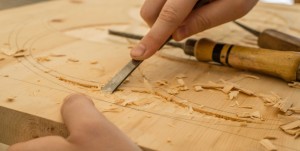Many successful and joyful people have worked with dedication and responsibility on their life’s work, only to find that along the way somewhere, they have lost their love of life.
 The opposite of play is not work – the opposite of play is depression. Over the long haul, when these spice-of-life elements of play are missing, what is left is a dulled soul.
The opposite of play is not work – the opposite of play is depression. Over the long haul, when these spice-of-life elements of play are missing, what is left is a dulled soul.
Play and work are mutually supportive. Neither one can survive without the other. We need newness of play, its sense of flow, and being in the moment. We need the sense of discovery and liveliness that it provides. We also need the purpose of work, the economic stability it offers, the sense that we are doing service for others, that we are needed and integrated into our world.
And most of us need also to feel competent. Even people who are independently wealthy and never need to work a day in their lives find that they need to volunteer or donate to good causes to feel that sense of connection and purpose.
The quality that work and play have in common is creativity. In both we are building our world and creating new relationships, neural connections, and objects. Respecting our biologically programmed need for play can transform work. Play is nature’s greatest tool for creating new neural networks and for reconciling cognitive difficulties.
The Eight Types of Play Personalities
 Stuart Brown posits that there are eight different types of play personalities. Each person is probably a mix of several.
Stuart Brown posits that there are eight different types of play personalities. Each person is probably a mix of several.
The Joker. A joker’s play usually revolves around some kind of nonsense. Clowning, practical jokes, silliness.
The Kinesthete. Kinesthetes are people who like to move, and may even say that they think best when they are pursuing an activity.
The Explorer. Exploring can be physical – going to new place. It can also be emotional – searching for a new feeling through avenues like music, flirtation, dance.
The Competitor. The competitor loves the fight to be number one. Playing hard in order to win is exhilarating.
The Director. Directors are born organizers. At their best they are the party givers, instigators of fun.
The Collector. Collectors may love to find rare cars, or see every solar eclipse, or ride every train in the U.S., or collect coins.
The Artist/Creator. For the artist/creator, joy is found in making things. It may look like art, or repairing of broken items, or decorating a house.
 The Storyteller. Storytellers love imagination, and easily bring it to writing, drama, or everyday events.
The Storyteller. Storytellers love imagination, and easily bring it to writing, drama, or everyday events.
Tips for Relaxing as a Couple
Marriage, especially when it involves children, or demanding careers, can be hectic. Time for relaxation can get squeezed off the calendar. Below are some suggestions for squeezing it back in.
- Take one evening every week to be by yourselves, go out to dinner, or do other things you enjoy doing together.
- Read the comics or a funny book together.
- Have a party, decorate the house, and invite just your partner.
- Buy a new game, toy or puzzle and play it together.
- Have one meal a week to which each person brings a joke.
- Write a funny or “serious” note and hide it where your partner will find it.
- Take turns doing something your partner enjoys. “Today I’ll play golf with you, if tomorrow you garden with me.”
- Make a habit of going on short walks together.
- Spend $5 on gag gifts for your partner, wrap them up, and save them for a rainy day.
- Do the following exercise:
> Each of you make a list of 10 or 20 things you enjoy doing with your partner.
> Look over your list and mark a few that you would like to do more often.
> Share your lists with each other, and discuss the similarities and differences.
> Pick one or two that you would like to accomplish, and make plans for it. Include times and dates, and mark the time on your calendar.
> Set a later date when you can talk about your experience and decide about future plans.
What some would call the “dark side” of play is not to be confused with addictive behaviors, meanness or bullying, or using play as a salve for feelings of inadequacy, pain, or hurt. When someone is domineering, aggressive, or violent, they are not engaged in true play, no matter what they are doing.
In play, we learn how to deal with life’s wins and losses with grace. In the end, we learn to shake hands and let the emotions go, something that is useful in “real” life as well as in games. A poor sport can’t do so in either arena.
 Remember the feeling of true play, and let that be your guiding star. You don’t have to become irresponsible or walk away from your job and your family to find that feeling again.
Remember the feeling of true play, and let that be your guiding star. You don’t have to become irresponsible or walk away from your job and your family to find that feeling again.
James Michener wrote these words in his autobiography:
The master in the art of living makes little distinction between his work and his play, his labor and his leisure, his mind and his body, his information and his recreation, his love and his religion. He hardly knows which is which. He simply pursues his vision of excellence at whatever he does, leaving others to decide whether he is working or playing. To him, he’s always doing both.
“Playful”, Courtesy of Daniel Apodaca, Unsplash.com; CC0 License; “Bubble Forest”, Courtesy of Hudson Hintze, Unsplash.com; CC0 License; “Carving Closeup No. 2”, Courtesy of Dominik Scythe, Unsplash.com; CC0 License; “Laughing by the Tracks”, Priscilla Du Preez, Unsplash.com; CC0 License;






